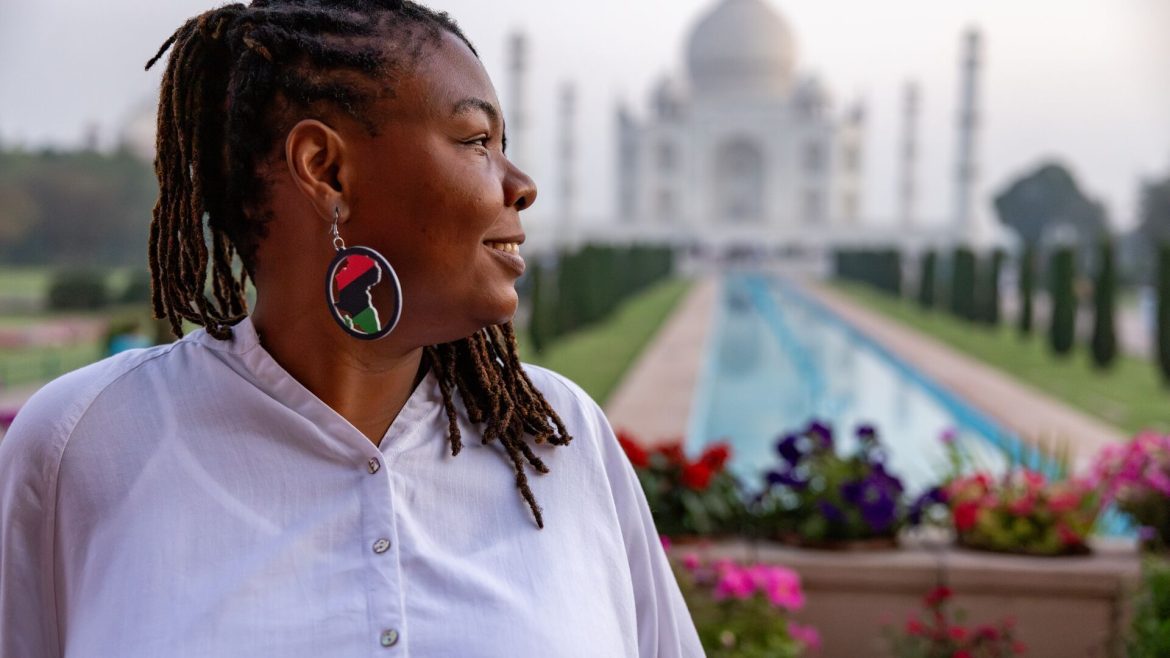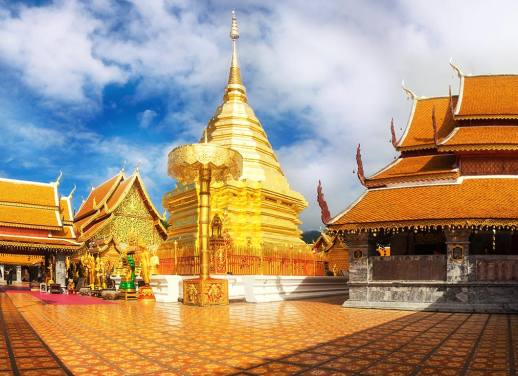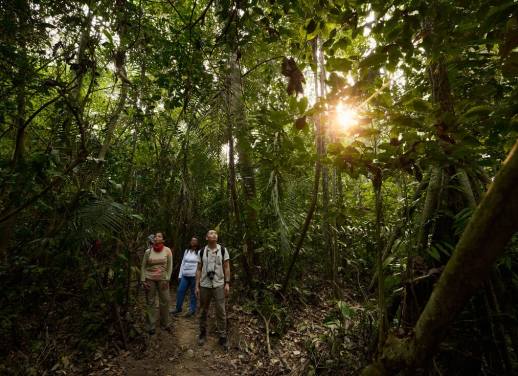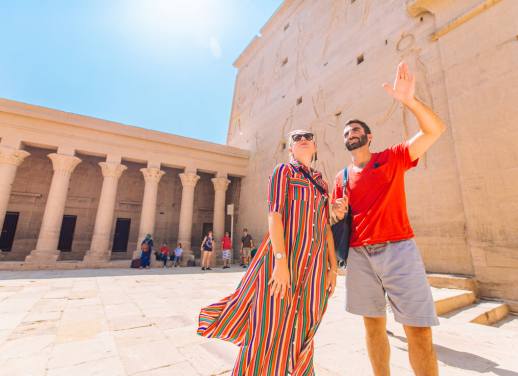They say never meet your heroes. But on a trip to India with Intrepid after a tragic personal loss, Wadzi did just that – and found renewed strength through sisterhood.
Two years ago, my friend Vinitha invited me to watch Geeta at the movies in Melbourne, where I live. It’s a documentary by Emma Macey-Storch about the acid attacks that happen in India. I had learned about these attacks years before and knew that the victims were mostly girls and women, left physically and emotionally scarred by the deeply vitriolic actions of their attackers. The film made my blood boil.
The documentary tells the story of Geeta Mahor, an Indian woman who was asleep with her young daughters when her husband, Inderjeet, came into the room and threw acid on all of them. Geeta was severely injured, three-year-old Neetu was heavily burned and nearly blinded, and baby Krishna tragically died. Inderjeet said he did it because Geeta had not given him any sons.
This story is one of many. Hundreds of acid attacks occur in India each year – with common catalysts including denial of sex, refusal of marriage and family disputes.
Striving for change
It’s been 30 years since Geeta and her daughter Neetu were attacked.
Today, they are representatives of the Stop Acid Attacks campaign – an activist movement that led to the creation of Sheroes Hangout Cafe in Agra, where they are founding members. After seeing the documentary, I started following their activism on social media, staying updated on their work. These resilient women made a big impression on me.
Sheroes Hangout is the world’s first cafe run by acid attack survivors. They are working tirelessly to fight gender-based violence in an intensely male-dominated culture and create lasting societal change. One way they do this is through economic empowerment. Many acid attack survivors lack professional experience and find it difficult to find employment, so working at the cafe is a way for them to gain skills. Sharing their stories with customers also helps to raise awareness, reduce stigma and change mindsets.
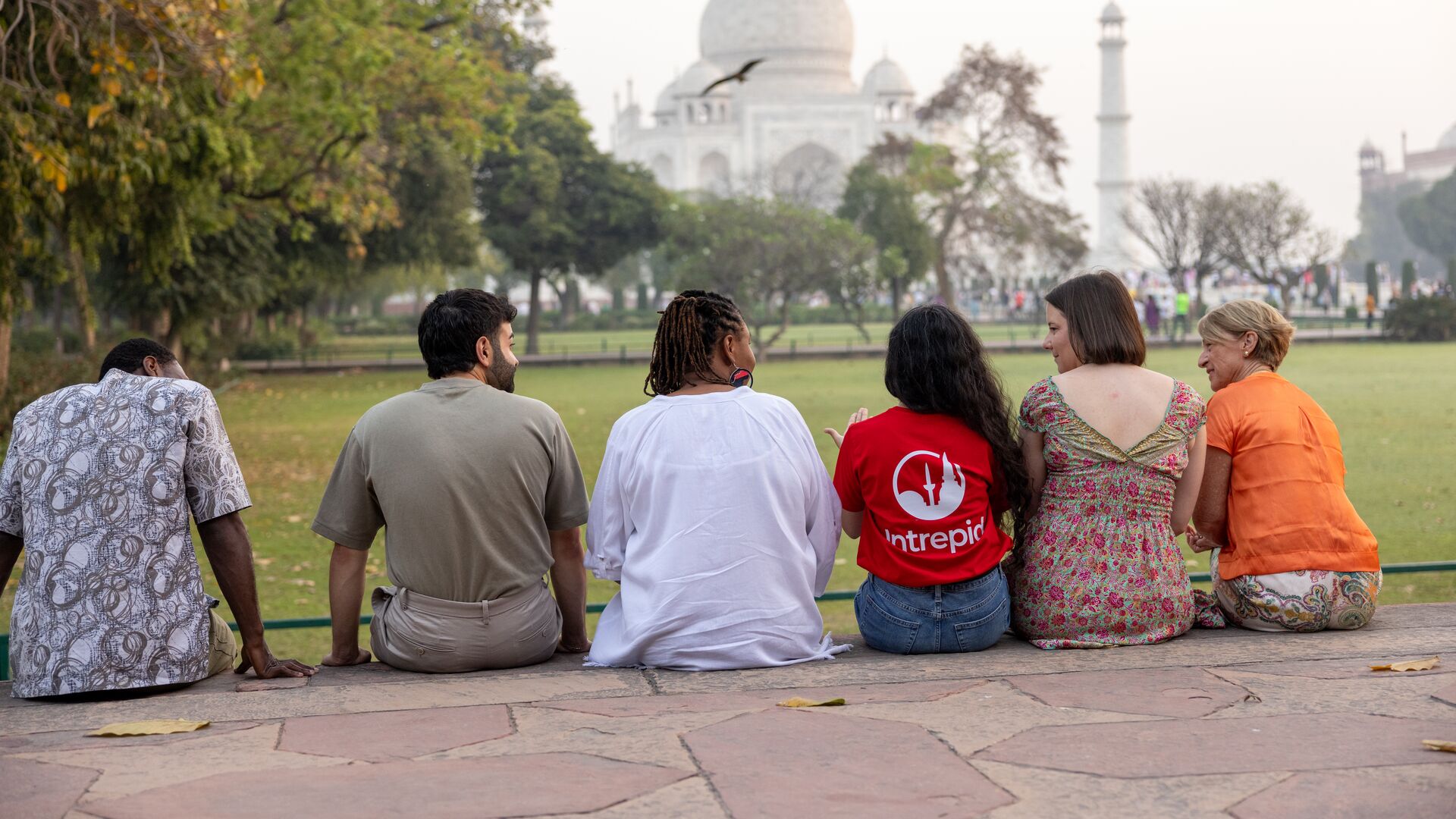
Travelling through grief
In 2024, I found myself on an Intrepid trip to India, a country I’d always wanted to visit. The Taj Mahal in Agra blew me away, but it was not to be my most memorable experience in this city.
When our local leader Shrishti said we were going to visit a cafe run by acid attack survivors, I knew she was talking about the Sheroes Hangout. It was completely unexpected. As I told the group about the documentary, all the emotions I felt watching Geeta came back to me. I could not believe I would be visiting.
It wasn’t just about meeting two women I had learned about in a documentary. Sharing an afternoon with the sheroes at this time in my life felt like a pivotal moment in my own story too.
The Taj Mahal in Agra blew me away, but it was not to be my most memorable experience in this city.
Five months before my trip to India, my wonderful dad was violently murdered by my mentally ill cousin. I was devastated. This truly horrific loss has been the worst experience my family and I have ever had to endure.
I decided to go to India after this ordeal because I wanted some light to wash over the darkness surrounding me. I needed a break from the constant questions in my mind, the disbelief and the anger. I needed something to hold onto, some sliver of hope in a world that seemed very cruel, unsafe and unpredictable. Travel has always been such a meaningful experience for me, so when the chance to visit India came, I took it.
It wasn’t all easy. I had moments when I thought of my dad and wished he were still around, but I mostly thought about how happy he would have been for me, as he was a fellow lover of travel.
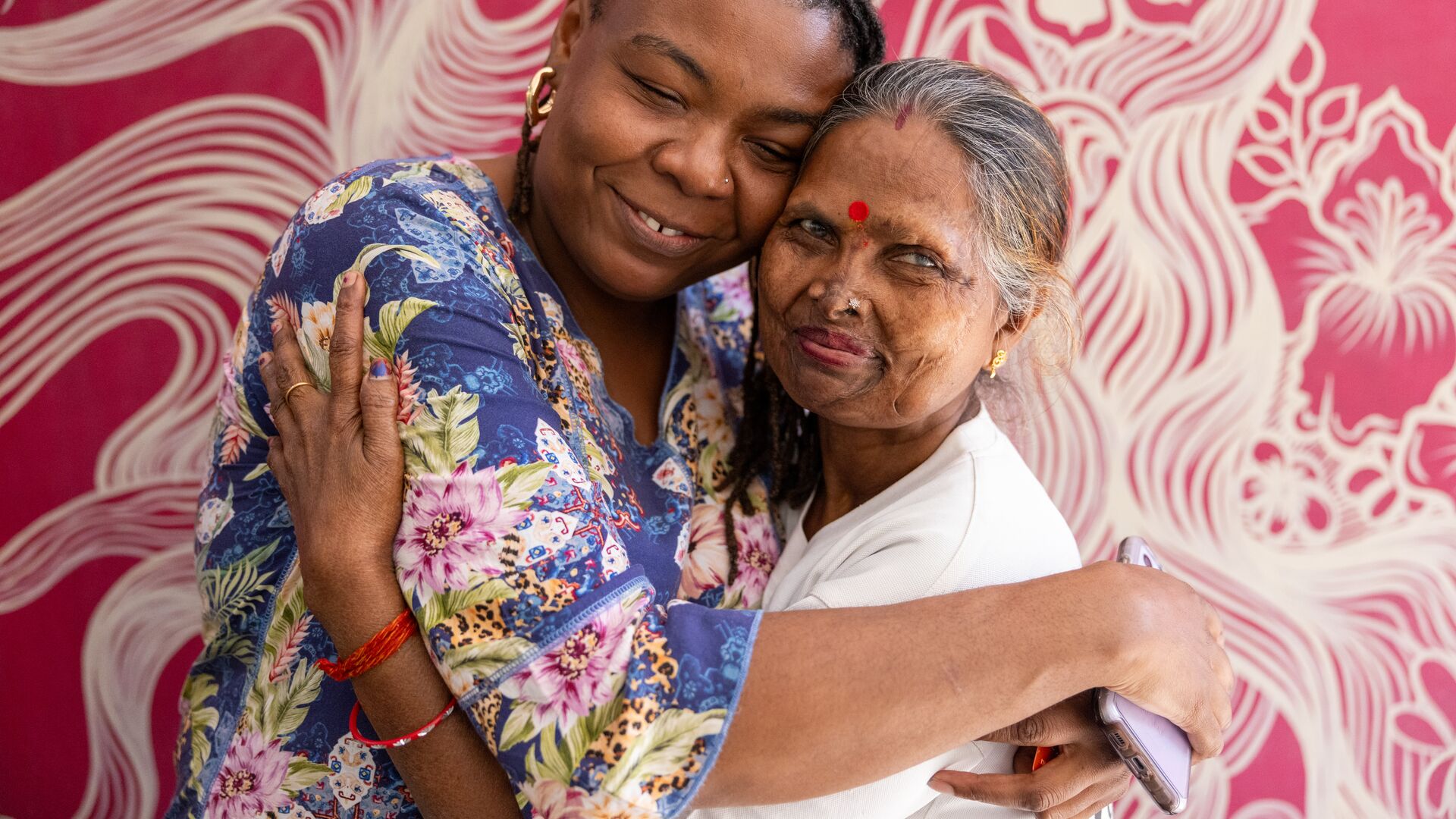
Always meet your sheroes
Arriving at Sheroes Hangout, I couldn’t quell the hope that Geeta and Neetu were inside. When I walked through the doors and saw the women with their scars, my eyes darted around, searching for them. My heart swelled when I spotted beautiful Geeta. This woman had been through hell and come out the other side. I was starstruck.
I was a total fangirl and told her so. We had a sweet interaction. While she doesn’t speak much English, I was able to let her know that I had seen the documentary and had been there when her daughter Neetu came to Melbourne for the screening. I told her how inspiring I thought she was, that she and the other ‘sheroes’ are my heroes. She said I was now her daughter, sweet words that touched me deeply.
Throughout the cafe, there are framed pictures and stories about the survivors. I read every one of them because their stories need to be heard.
There was Dolly, who was only 12 when a 25-year-old man attacked her. The acid ruined her nostrils and gave her a chronic breathing problem. For a year after the attack, she refused to leave her house. In a letter to her attacker, she wrote, “You burnt my face, but not my will to live. You can’t throw acid on that. I will fight the case in court not only for myself but for other girls, so they do not lose their courage before people like you.”
Another lady, Shanti, was 18 years old when a man called Ajay poured acid on her and ran off – all because of a family disagreement that had nothing to do with her personally. The acid greatly affected her hearing. She is quoted as saying, “To teach a lesson to my family, they destroyed me.”
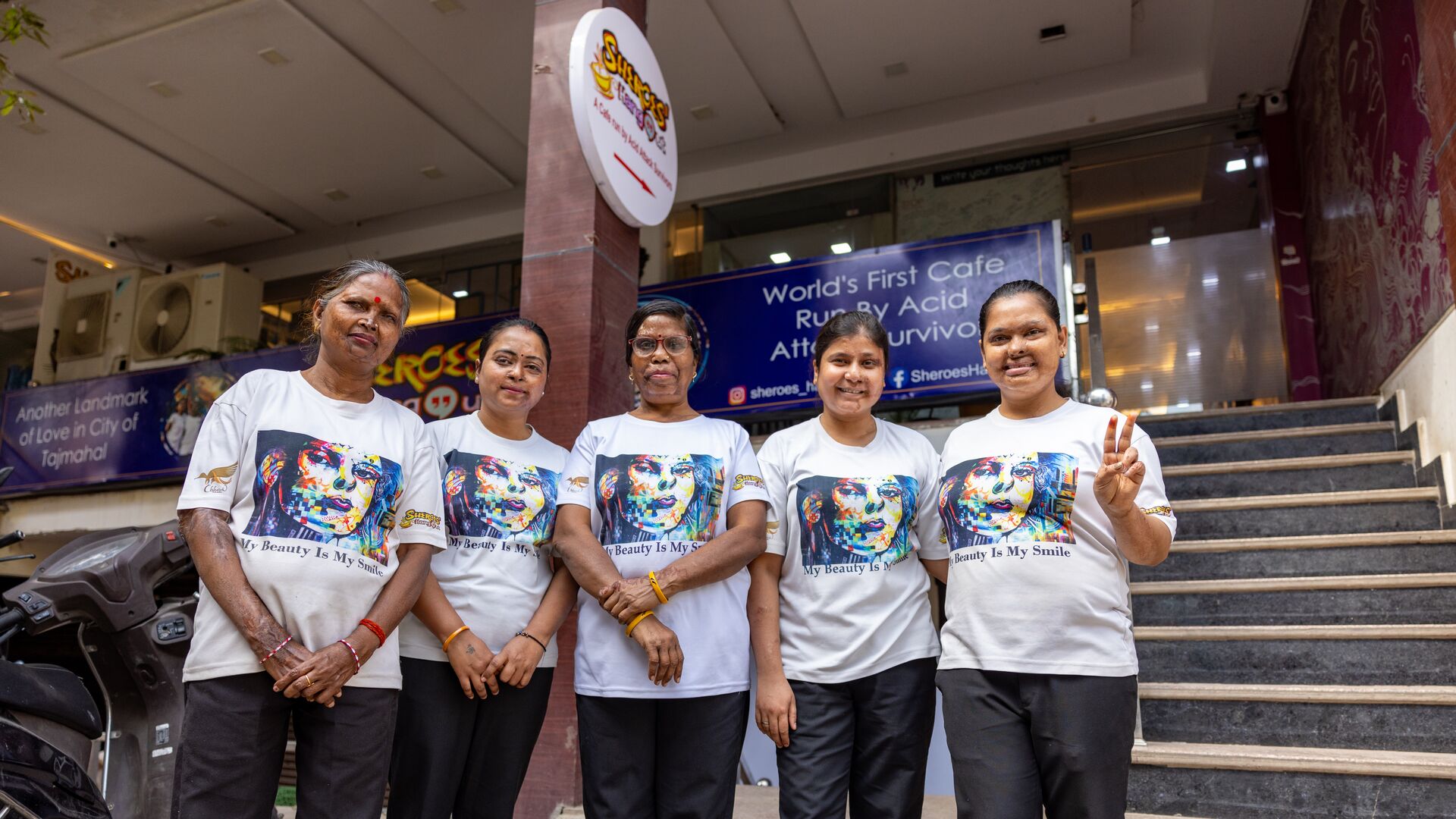
One of my favourite things about travelling with Intrepid is that they always support local organisations, like Sheroes Hangout, that are making a difference in locals’ lives. What I hadn’t anticipated was the impact these women would have on me.
The ladies at Sheroes Hangout gave me a footing to hold on to when I was grieving, and I’ll never forget that. They taught me that while traumatic events change you forever, it is possible to move forward. They showed me that it’s possible to come through unimaginable pain and take back your power. They gave me this gift during the hardest time of my life, and for that, I will always be grateful.
Visit Sheroes Hangout and support the work of Geeta and other survivors on Intrepid’s India’s Golden Triangle trip or India: Women’s Expedition.

